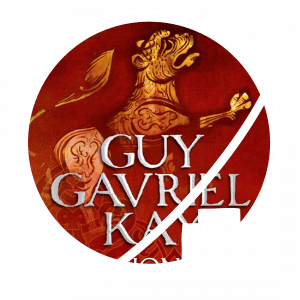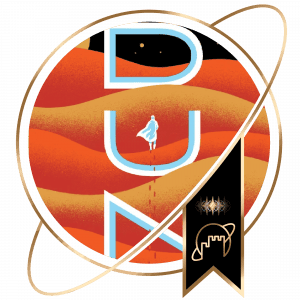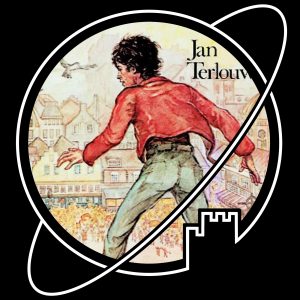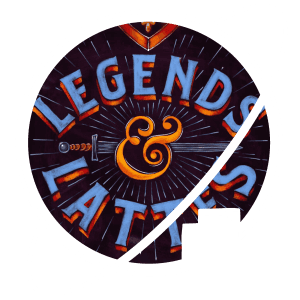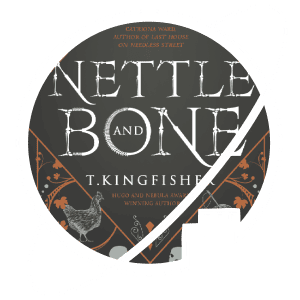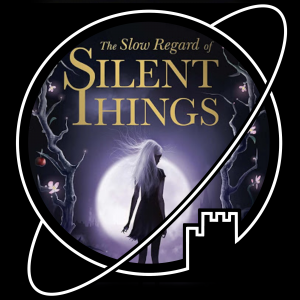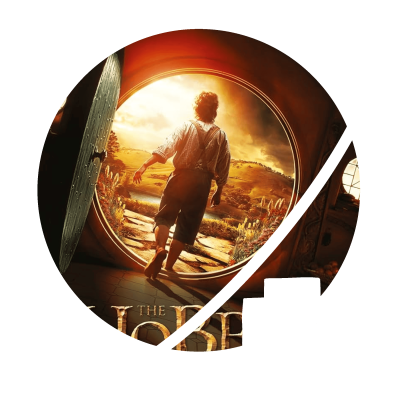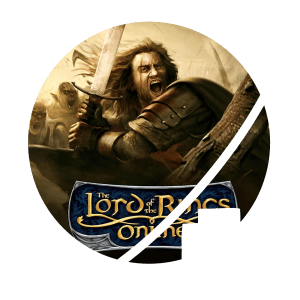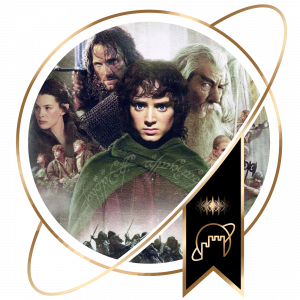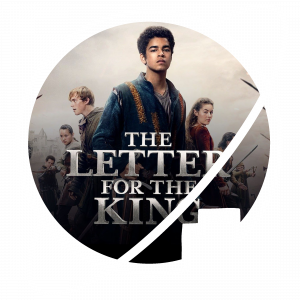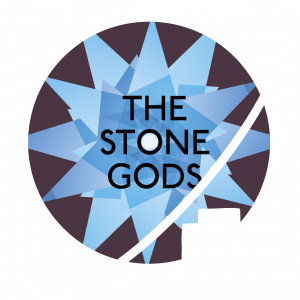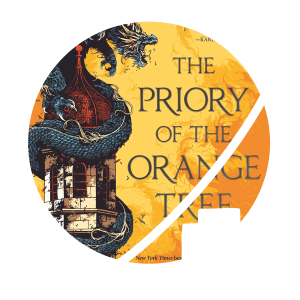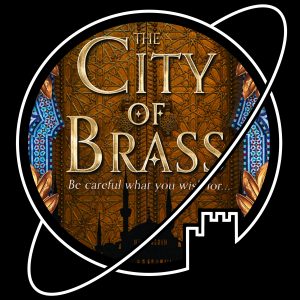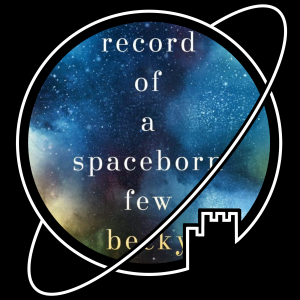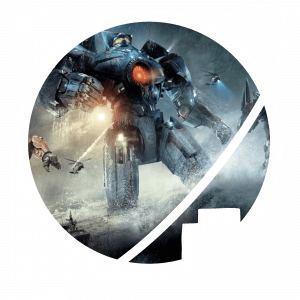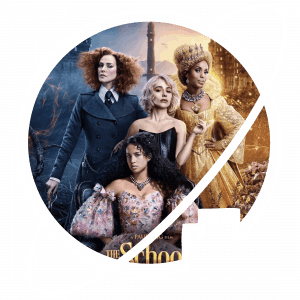Welcome to the Escape Velocity Collection!
We are an opinionated group of friends reviewing all sorts of fantasy and science fiction media. Don’t forget to get to know the curators and visit our curated Collection, where we discuss the stories that never cease to transport us to another world.
Will you escape with us?
LATEST POSTS:
- Novel written by Paulo Coelho
- Translated by Alan R. Clarke
- Published in 1988
- Standalone
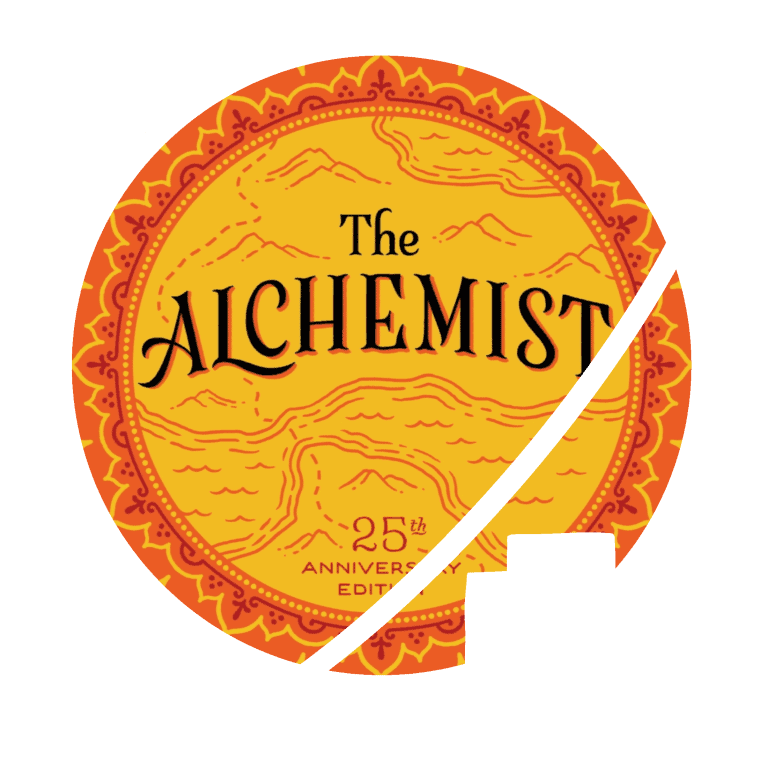

Listened to the Alan R. Clarke translation, narrated by Jeremy Irons. I’m going to have to admit that seeing Irons as the narrator was at least half the reason I finally listened to The Alchemist and he did not disappoint: Irons has an incredible voice that fits the story very well.
The Alchemist is one of these novels that I have been aware of for a long time. I’m not sure why I never read it, but I regret that now. I would have loved to have read this as a kid.
The Alchemist is a retelling of a story told a thousand times: a shepherd boy leaving all he knows behind, travelling to foreign lands, looking for treasure. Of course, he finds and experiences much more along the way, and of course, there is a classic twist at the end.
That classic tale is mostly a vehicle, however, for the book’s message: that everyone has a personal legend, and that the universe will conspire to help a person who is on their way to achieving that personal legend. It is a book about seeking out and committing to your destiny, no matter the setbacks along the way.
It is a beautiful and inspiring message, even if I’m not sure I agree: the world is a rather unyielding and unfair place, and even people trying really hard sometimes don’t make it. Still, Coelho’s characters are so confident that I didn’t doubt for a moment that the boy would manifest that personal legend.
Perhaps the best thing about The Alchemist is its length. It is about four hours of listening, I would venture about 200 pages long. On the right day, you could definitely finish it in a single inspirational and heart-warming sitting.
I love the simplicity, the single-minded focus of The Alchemist. There is not a word spent on a tangent, never a second thought required from the reader. The plot follows predictable lines, the book is set in the real world, many of the characters are stereotypes – all so that the reader keeps his mind on what really matters: the message.
The focus on the message is reinforced by the simple and elegant style of the book. To give one example: the main character is named in the first sentence of the book, but that is the only time his name is used; through the rest of the novel, he is just ‘the boy’. That this makes perfect sense throughout the novel is a sign of Coelho’s craftsmanship.
Especially because it is so short, I would whole-heartedly recommend The Alchemist to almost anyone: cynical folks like me who need a break, the better-natured readers looking for an inspirational tale to reinforce their energy, even readers who have never tried fantasy before and want to dip their toes in the water via Coelho’s simple magical realism. I am sure each and every one of them would remember The Alchemist for the rest of their lives.
Tagged:
See also:
- Novel written by Patricia A. McKillip
- Published in 7 June 2005
- Standalone


Listened to the audiobook with Gabrielle de Cuir – well narrated, but I did have to speed her up by 1.8x because of her pace. That did make the book a nice and short listen at ~6 hours.
Warning: this review is as much about my character development as a reviewer as it is about Od Magic.
I am in a busy period at work and I have less time and energy to spend on reading, so I decided to re-read something rather than picking up something new.
I remember reading Od Magic 6 years ago when I had just decided I wanted to get back into reading and wanted to branch out a bit beyond the obvious big names such as George R.R. Martin and Robin Hobb. I also remember disliking Od Magic, even though some of the whimsical atmosphere did stick with me.
I decided to re-read it as a bit of a challenge to myself: was Od Magic really as bad as the notes I took back then made it out to be? Or has reading a lot more over the past half decade made me appreciate Od Magic more?
I am glad to find that the second is true: having read a lot more these past years, I have come to understand what Od Magic tried to achieve much better. My tastes have also developed, and I have come to appreciate low stakes, low violence, atmospheric storytelling a lot more. I love grimdark stories, but not every book needs to be A Song of Ice and Fire or First Law.
So on second read, I liked Od Magic. It is a comfortable cozy fantasy avant la lettre with no pretentions, likeable characters and a great atmosphere.
I probably shouldn’t overshoot this point: Od Magic isn’t brilliant, and it is not the type of book that makes me come back to fantasy all the time. But as a simple feel good read or perhaps something to read to children, it just about manages it make my list of recommendations.
What lets Od Magic down is definitely the middle section. After a nice introduction that sets up the story well, the middle is a bit of a messy tangle of storylines following different of different characters looking for each other in the Twilight Quarter, the mysterious part of town filled with minor magics and nightlife that is easily the book’s best backdrop (though I would have loved a little more detail).
Unfortunately, I found there is too much in-and-out and repetition in this section – it just lacks structure and I can understand why I zoned out the first time I read Od Magic. You’re not reading Od Magic for the plot anyway, so perhaps McKillip or her editor should have simplified this part of the story or cut one or two the lines.
Still, even though the middle is messy and the ending isn’t exactly unpredictable or spectacular, I did find the conclusion satisfying.
That, too, is a marked difference from my first read, because I remember being disappointed by the lack of a twist or reveal and especially the absence of real fireworks. But this time, I actually enjoyed the mild finale. It fits the book, which is comfortable and calm throughout. Why should then ending shake that up?
I guess that the main takeaway from this review is that Od Magic is just very mild, and for me it takes a certain mindset to appreciate that. But if you happen to like mild fantasy, I would certainly recommend it.
The fact that I now see the value of Od Magic shows to me that I have learned to appreciate things that aren’t necessarily my style. The past years of reading and writing reviews have helped me bring into focus better what my personal likes and biases are, and to separate these from the inherent quality of a story. I have learned that a story that does not fit my particular niche can still be great at what it wants to do. That lesson alone made re-reading Od Magic worth the time.
Tagged:
See also:
- Movie directed by Peter Jackson
- Based on The Hobbit by J.R.R. Tolkien
- Starring Ian McKellen, Martin Freeman, Richard Armitage, James Nesbitt, Ken Stott, Cate Blanchett and others
- Released 28 November 2012
- Runtime: 169 minutes (theatrical edition) or 182 minutes (extended edition)

(Nota bene: this review relates to the extended edition of the movie. Though I’ve once seen the theatrical editions of the The Hobbit trilogy, the extended editions always have my preference, and I’ve seen them more times than I can count.)
Let’s start with the obvious caveat, one most people will probably agree with (some more fervently than others): The Hobbit trilogy is not of the same quality as The Lord of the Rings trilogy. The use of CGI is arguably too much, the writing and pacing are less on point and they gave Peter Jackson a little too much free rein to express his very niche sense of humour. These are just a few of the examples that prevent this trilogy from being the masterpiece The Lord of the Rings is. Still, I like this movies very much, maybe more than they deserve. As such, I rewatch them all each year, just as I do with the The Lord of the Rings.
An Unexpected Journey was very much an unexpected experience all those years ago. It’s hard to imagine now, but for years it seemed like there wouldn’t be any other movies (or let alone series) set in Middle-Earth. I was very grateful to get the opportunity to revisit this beloved universe, with familiar faces such as Sir Ian McKellen, Hugo Weaving and Cate Blanchett reprising their roles. Compared with the screenwriters’ representation of Tolkien’s themes, Howard Shore’s music and the stunning landscapes of New-Zealand made it feel like I was returning home after a long time away.
I shall admit I find it hard to gauge how much my enjoyment of these movies is determined by my nostalgia for The Lord of the Rings, or even the original source material itself. Would people like them better or worse if they weren’t in the shadow of these other media? I can’t say.
Something I can say, is that I very much like Martin Freeman’s portrayal of a younger Bilbo Baggins, a respectable hobbit drawn into a dangerous adventure he doesn’t quite understand. His (often subtle) facial expressions really give depth to a character that has to be able to be funny and endearing, as well as a protagonist with emotional depth.
However, the adaptation of Thorin Oakenshield (masterfully portrayed by Richard Armitage) is what probably resonated the most with me. The narrative of a banished king trying to reclaim his heritage with a small band of loyal warriors is in itself gripping enough. Yet, An Unexpected Journey introduces a Thorin with internal struggles that I feel don’t often get explored in media: the personal threat of a genetic mental disorder you might inherit. Though I (nor the DSM, probably) wouldn’t normally consider ‘dragon-sickness’ a mental disorder – it seems more like a magical influence or a higher susceptibility to greed/paranoia – the other characters treat it as such. This is the build-up of (potentially) great characterization. Is Thorin prone to the same ‘sickness’ that seems to run in his family? If so, does this undermine the leadership capabilities he clearly has? Can he give his people what they need by reclaiming their home and the dangerous wealth that lies there?
Though, as I already mentioned, there are some aspects of An Unexpected Journey I’m less fond of. At times, the humour can be jarring, in the form of anachronisms, inappropriate ‘final words’ and the interpretation of Radagast the Brown (though I love Sylvester McCoy). Furthermore, there are some adaptation choices I have ambivalent feelings about. For example, I like the inclusion of an antagonist to weave most of the random misadventures on the road together, but I don’t see why it couldn’t have been Bolg instead of Azog (something I will feel a lot stronger about when we arrive at The Battle of the Five Armies). Additionally, the added time pressure of the quest always seemed unnecessary to me, and only results in some awkward scenes throughout the trilogy.
All in all, it might be fair to say An Unexpected Journey is something of a hot mess, with a lot to say about it, both positive and negative. Frankly, his review is already longer than I thought it would get. To offer some final thoughts… If you’ve read the book, I feel this first movie most captures the whimsical adventurous feel of The Hobbit. It’s worth a try if you’re somehow unfamiliar with all the other movies and books, but want a taste that of Middle-Earth that is a little more accessible. Tolkien purists should give it a wide berth, though.
Also, this movie doesn’t feature enough Smaug. Luckily for me, that what the next movie is for.
Tagged:
- Novel written by Tonke Dragt
- Published in April 1965
- Sequel to The Letter for the King

If you’ve read my review of the first part of this series, you’ll know I think The Secrets of the Wild Woods is one of the best, if not the best, fantasy books ever written in Dutch. Yes, it is originally intended for children, and yes, that is noticeable. But even for grown-ups, the book is so full of atmosphere and tension that it is tough to put away.
Where the The Letter for the King is a bit more cautious about how it approaches the many dangers of an adventurer’s life (Dragt sanitises some, simply dodges others) to fit on a kid’s bookshelf, The Secrets of the Wild Woods does away with that approach somewhat and delves deeper into the dark side of a medieval world full of knights and riders in red: there’s war, there’s fighting, there’s killing and dying.
Though the setting never becomes grim or dark, The Secrets of the Wild Wood exchanges a little of the fairy tale-esque atmosphere of the first book for a slightly harsher view of knighthood, and I love it. For me, it compares to the stories of King Arthur and his knights of the round table – there’s quests, heroics, deceit, a clear sense of right and wrong, and honour even among the enemy.
As a result of the dangers feeling more tangible and real, the book’s pacing and tension turn up a notch too – there’s more happening at the same time, and Tiuri’s (and the other characters’) predicaments grow more dire. The plot is a little more involved and you’ll find yourself flipping back to the map more often than before.
It brings Secrets of the Wild Woods closer to the more traditional grown-up fantasy fare whilst still retaining some of that beautiful simplicity. Perhaps we could see Secrets of the Wild Woods as a bridge for a young reader from children’s fantasy to YA or adult books.
I would recommend Secrets of the Wild Woods to anyone who enjoyed The Letter for the King. Even if you finished The Letter for the King and thought it was ok, but were put off a little because it was too much a children’s book for you, maybe still give this one a go: Secrets of the Wild Woods brings a little more grim to an otherwise noble world and a plot with a few more twists and turns.
Plus, it heavily features Knight Ristridin who is hands down the best character in all of Dutch speculative literature, if not in all of fantasy literature the world over. He’s the Dutch Aragorn. Knight Ristridin is the reason I attend H.E.M.A./historical fencing training every week. You need more of Knight Ristridin in your life.
Tagged:
See also:
- Movie directed by Bertrand Bonello
- Starring Léa Seydoux, George MacKay and others
- Spoken in French and English
- Released 7 February 2024
- Runtime: 145 minutes

The Beast has a very atmospheric, almost hypnotic style of cinematography, which at the same time feels quite ominous. Just like the main character Gabrielle you can’t help feeling like something bad is going to happen at any moment, a feeling aided by the unsettling music that accompanies many of the scenes.
The movie touches upon many different themes, like desire, intergenerational trauma, and ultimately the question of what makes us human. While these are all interesting themes, I felt that some of them could have been explored a bit more in-depth. For example, the description of the movie made me think that humanity’s relationship with AI was going to be a big part of this movie, but it was really only used as a backdrop. I think if they had tried to put slightly fewer ideas into the movie, the rest may have had more space to fully develop.
Moreover, in the second half of the movie it turned from a period drama to a full on thriller, and I enjoyed that half significantly less. I realise that this is mostly because I just do not enjoy horror/thiller in general, but I still feel that even so, this part took longer than necessary.
What did stand out to me, were the performances by the two main actors. Both of them did an incredible job in portraying their roles throughout the different ‘reincarnations’. The characters were both markably distinct, and still believably the same ‘person’. I also really enjoyed the mirroring of images, phrases or whole scenes between the different time periods. This really added to making the story one whole, instead of three separate narratives.
Overall, this movie did give me something to think about, and while I was cycling home from the cinema I felt like I had just returned from a completely different reality. So in the end I would say it was a worthwhile experience.
- Novel written by S.A. Chakraborty
- Published in 7 March 2023
- Part one of a planned Amina al-Sirafi-trilogy


The Daevabad trilogy remains one of my all time favourite fantasy series, so you can imagine my excitement when I saw that a new Chakraborty had been released. Unfortunately I did not end up loving this one quite as much as the Daevabad trilogy, but the book still has much to recommend. I really liked that the protagonist was a bit older than the average fantasy protagonist. Because of this Amina’s internal struggles were refreshingly different: no annoying teenage angst, and the book was not driven by the romantic tension of some complicated and tortured love triangle. Instead, Amina’s thoughts were more focussed around the dilemma’s of leaving her child behind while providing for her family. A struggle many working parents will surely be able to relate to.
The book also does quite well on the representation front in general, and while a lot of the story was taken up by the ‘getting the old crew together’ build-up, it was fast-paced enough that it did not get boring. The plot itself was not spectacularly original, but I would say it served it’s purpose.
So overall I enjoyed the book, but it did not stand out to me like the Daevabad trilogy did. As always, it’s the characters that make or break the story for me, and while I liked them, I cannot say that I loved them. For example, three years after reading The Empire of Gold I am still able to vividly picture many of its side characters and to explain their complicated political motivations, while except for Amina herself, the crew-members in this book already seem to have blurred together in my mind.
Then again, there is definitely a lot of potential there, and with the Daevabad trilogy the first book was also by far my least favourite of the three. So when part two is released, count me in for sure!

Listened to the audiobook with Amin El Gamal and Lameece Issaq – well narrated.
Unlike most of our curators, I rather disliked Chakraborty’s City of Brass – it has been a while since I read it, but I mostly remember teenage drama taking all the life out of what could have otherwise been an interesting story in an original setting. I reread my review and I noted that Chakraborty’s style would perhaps be better suited to a more light-hearted tale (this is foreshadowing).
The Adventures of Amina al-Sirafi is not a more light-hearted tale. Quite the opposite, in fact: in Amina al-Sirafi, Chakraborty lost all the teenage drama and made her protagonist a retired pirate captain who is a mother first and foremost. I like that change of pace, and as a result, I think The Adventures of Amina al-Sirafi fit me a whole lot better. Whether Amina al-Sirafi also fits Chakraborty’s style better is another question altogether.
I’ve only read two of her books, so I should perhaps be careful to judge, but my impression is that Chakraborty tends to just keep it simple in her world building: less of a carefully constructed set of rules or a build up towards a certain end goal, more of a series of go-with-the-flow, rule-of-cool impressions.
The Adventures of Amina al-Sirafi is no different. None of the magical plot elements are ever really explained; they just exist and the reader is along for the ride. Especially towards the end of the book, a whole lot happens that raised my eyebrows a couple of times, but the reader is just expected to take it in stride.
I found this particularly frustrating because at the start of the novel, Chakraborty seems to be making an effort to ground her fantasy novel in the real world 12th century Middle-East, which initially had me hyped up – but it soon becomes apparent that she is liberally pasting staples of the fantasy genre over her historical setting.
The plot is written in a similar style. The first half of the book skirts the edge of cliché with how closely it follows the predictable tropes of ‘retired hero blackmailed into one last job’ and ‘getting the boys back together’. Chakraborty doesn’t execute these tropes poorly, but I feel this section of the book takes way more time to tell than it probably should have (especially considering that I still never really connected with the rest of the crew Amina is getting back together).
The second half of the novel is a highly-paced and action-packed flow that keeps your attention. Unfortunately, I felt the resolution of the plot isn’t particularly well-constructed and at times felt like it was written on the fly. It is best not to overthink it too much. Then again, I don’t think Chakraborty really encourages the reader to stop and think about it – that is not the kind of plot that she is writing.
It is, however, the kind of plot that I want to read. As a result, I lost my investment in the story towards the end of the novel and I might even have zoned out for some of the big end fights. I guess it is a sign on the wall.
Overall, I didn’t dislike The Adventures of Amina al-Sirafi, but I wouldn’t exactly recommend it to people like me either. I’ve been going back and forth on my star rating, and I probably would have given it 2.75 stars if that were a thing we did on this website. To me, it just falls narrowly short: lacking slightly in depth, lacking slightly in character; the plot in the first half is just a bit unoriginal, the resolution in the second half not quite earned – and the novel is still over 16 hours of listening.
Bluntly put, The Adventures of Amina al-Sirafi is just too long, just slightly too ambitious for what it offers. If this would have been a quick and simple 8-hour read that I would have blazed through in a week, I would have likely rated it a whole lot higher.
As a result, I remain convinced that Chakraborty’s style is just a little ‘light’ for the kind of novels she is writing. I’m not sure I’ll pick up another of her books, but I might be interested if she veered off into a more intentionally simple and humorous direction, where I feel her original ideas might come into their own a lot better.
Tagged:
See also:
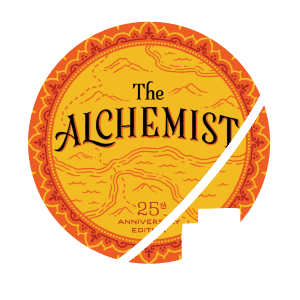
Review: The Alchemist – Paulo Coelho
The boy is a shepherd on the plains of Andalucía, with a recurring dream of treasure. When a gypsy fortune-teller tells the boy that his treasure is buried near the pyramids of Egypt and a mysterious man tells the boy that he ought to seek out his personal legend, the boy decides to leave behind his life as a shepherd, to sell his flock and to set out on a journey to find the treasure at the foot of the pyramids.

Review: Od Magic – Patricia A. McKillip
Brenden Vetch likes to talk to plants more than he likes talking to people – but when the great wizard Od invites him to become a gardener at her school of magic, he sets out to the capital of the kingdom to take up residence. Meanwhile, the capital is enthralled by the presence of the mysterious illusionist Tyramin, the King and his wizards wondering whether the illusive enchanter practices real and illegal magic of if perhaps it is all just tricks. Finally princess Sulys, the King’s daughter, finds that her betrothal to the cold wizard Valoren, one of the King’s counsellors, makes her question her father’s laws and judgment.

Review: The Hobbit: An Unexpected Journey – Peter Jackson
Bilbo Baggins, a respectable hobbit with no experience when it comes to world beyond his home, is invited to join thirteen dwarves on their quest to reclaim their homeland. Of course, there’s potentially a dragon to deal with first, but that’s why they need Bilbo to be their burglar. Is he willing to trade the comforts of home for a rather uncomfortable adventure?

Review: The Secrets of the Wild Wood – Tonke Dragt
When the wandering knight Ristridin of the South does not return from his quest in the Wild Woods at the agreed upon time, Tiuri of the White Shield, his squire Piak, and Ristridin’s other friends set out to find him. But the Wild Woods are full of secrets, dangers, and men in green…

Review: The Beast – Bertrand Bonello
In a near future where artificial intelligence reigns supreme, human emotions have become a threat. To get rid of them, Gabrielle must purify her DNA by going back into her past lives. There, she reunites with Louis, her great love. But she’s overcome by fear, a premonition that catastrophe is on the way. (Official cinema blurb)

Review: The Adventures of Amina al-Sirafi – S.A. Chakraborty
Part one in the Amina al-Sirafi Trilogy – Retired pirate captain Amina al-Sirafi is called back to the sea when she is recruited to investigate the kidnapping of the daughter of a wealthy merchant from the city of Aden. While she struggles to leave behind her daughter, she gathers her old crew around her and sets out to find the cruel Frank mercenary Falco Palamenestra. The quest takes a dark turn, however, when rumours reach Amina that the Frank is an occult sorcerer with dangerous magic…









